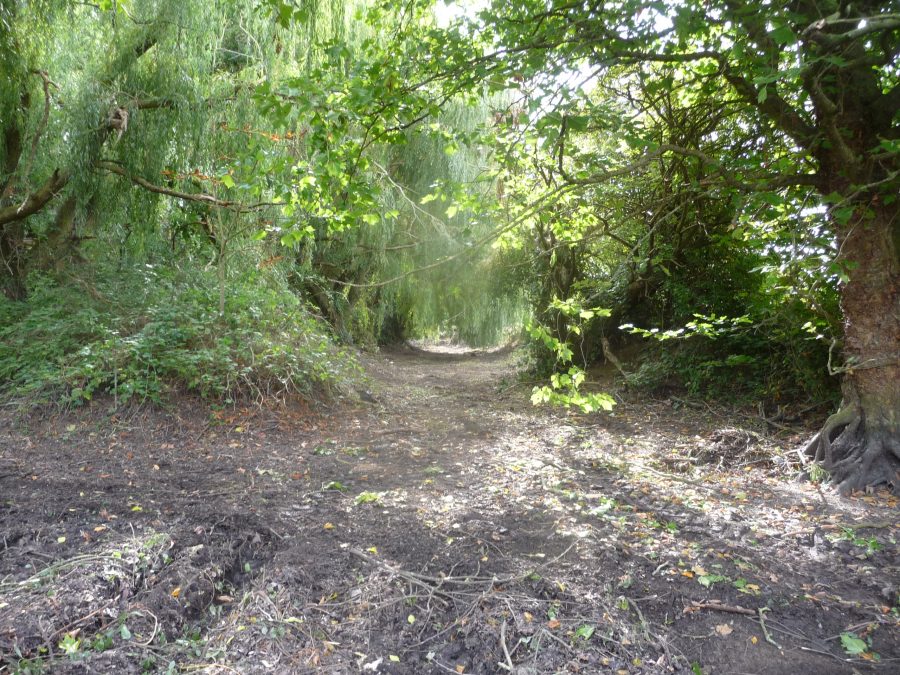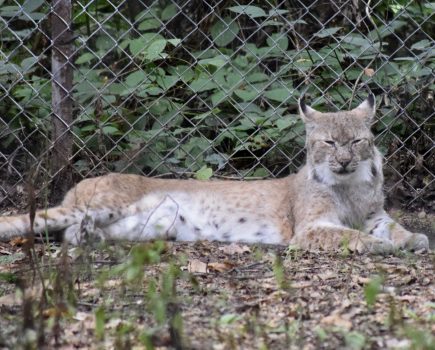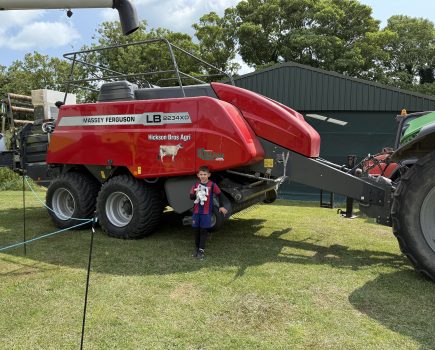I can never recall water levels so high for so long. It surely was one of the wettest Octobers ever recorded in the south, with just over 10 inches of rain.
The only blessing here was that we managed to push our local contractor to clear his maize from our low fields days before it would have been unsalvageable. Any later and the whole crop would have been three feet deep in water.
Local roads were shut for over two weeks and local shops and superstores were forced to close because their car parks were submerged. Caravan and mobile home parks were abandoned and farmers lost huge areas of winter-sown cereals. One man locally has reportedly lost 200 acres of newly emerged winter wheat.
And the reason? Simply that maintenance of drainage is in the hands of a national body which continues to prove itself incapable of doing the job it is paid to do. We farmers on lower land have seen this coming for years We have tried to draw attention to the shambles developing, but a largely urban parliament, on both sides, has been incapable of doing anything. So has it taken a nationwide disaster, costing individuals and businesses fortunes, for it to finally become apparent?
The question now is, will this agency learn, or will frogs and newts continue to be their priority? And conservationists don’t need to fret!. Those creatures, and the many others that need, and thrive in, clean water, survived well when waterways were maintained and kept flowing.
Maybe recent flooding will provide the lesson? If the modern ‘extreme green’ movement prevails we will quite soon be back to the 1500 to 1600s, and the UK certainly won’t be able to feed its rapidly growing population.
We had an interesting meeting last month with yet another expert from the ‘environment police’ which is worth relating. I was told in December of a meeting to discuss “any sources of environmental pollution on the farm to help us protect our environment and avoid pollution”. All very worthy stuff.
The last visit we recalled from the Environment Agency was back in the mid-1990s, when we were milking 150 cows and keeping all the progeny for either replacements or selling as strong stores.
We therefore had numerous areas where they could pick holes, although I think we were just installing a new large concrete slurry pit at the time so earned some ‘points’ and were treated quite well.
This letter, however, was written in a way that suggested they thought we still had the dairy which, in today’s world, is seen by environmentalists as amongst the worst polluters in the countryside. We now have no animals, store no chemicals or fertiliser and use no sprays. What is more, we no longer grow any food crops on the farm as all the maize goes into a local AD plant. But they insisted on a visit and enclosed a foolscap sheet of what they wanted to inspect.
When the day came, we went through their list with reasonable confidence; there were a few items we slipped up on, but we survived. Then towards the end we were asked about “any pollution concerns we had on the land” and the fun started.
I told them the only cause of pollution that troubled me, over which I had no control, was that from a local Southern Water treatment plant downstream of the farm. While downstream, it discharges sewage rather too regularly, which then comes back upstream and fills our rife-side ditches with sewage.
My plan for ‘carbon offsetting’ 20 acres of woodland has rather bemused a number of readers. They seem to think there must be huge returns involved in planting trees, when we could simply make half a million quid an acre selling the land to developers. But they miss my reasoning. My primary thought for contemplating trees, apart from the fact that I love trees, is because of the devastating change today’s housing developments bring to small rural settlements.
We have seen neighbouring communities destroyed in the past four or five years by mass overdevelopment but, generally speaking, there is one key issue here. Much of the new housing has been built by wealthy buyers who live elsewhere, probably with nice, private, homes in secluded countryside. Some may have come in and bought up the land quite recently, so have never lived in the communities they now ruin.
Here our neighbours will benefit from owning a home that won’t be spoilt by over development, in surroundings which will shortly be planted to a hardwood forest, with trees that will remain long after their own great grandchildren have grown old.
Pictured: What a different a year makes. We were able to clear trees from around the wildfowl pond last autumn it is now overflowing







